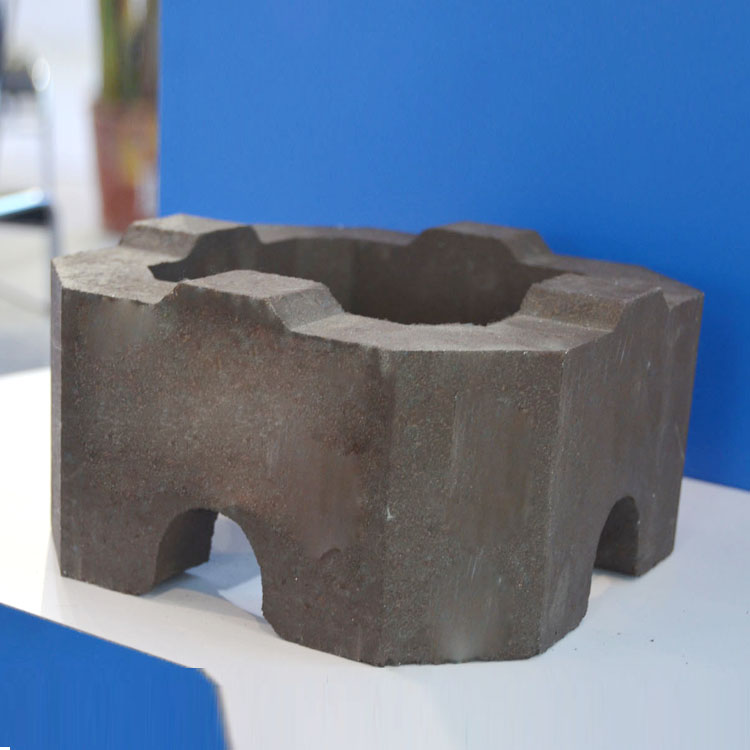
The global refractory material market has witnessed significant growth in recent years, driven by the expansion of industries such as steel, cement, and glass. According to market research, the global refractory market size was valued at approximately $XX billion in 2023 and is expected to grow at a CAGR of XX% from 2024 to 2030. With the continuous advancement of industrial technology, there is an increasing demand for high - performance refractory materials that can withstand more extreme conditions.
In this context, directly bonded magnesia - chrome bricks have emerged as a key player, leading the new trend in the refractory material market.
Non - fired magnesia - chrome bricks are one of the traditional types of magnesia - chrome bricks. Their production process mainly involves mixing magnesia and chrome ore with binders, followed by pressing and drying. These bricks have some advantages, such as relatively simple production and certain corrosion resistance. However, they also have significant limitations.
The strength of non - fired magnesia - chrome bricks is relatively low, and their performance at high temperatures is limited. For example, under long - term high - temperature conditions above 1500°C, their structure may gradually become loose, and their corrosion resistance may also decline. This restricts their application in some high - end industrial fields.
Directly bonded magnesia - chrome bricks are produced by high - temperature sintering at temperatures above 1700°C, which results in a direct bonding structure between magnesia and chrome ore crystals. This unique structure endows them with excellent performance.
In terms of high - temperature resistance, directly bonded magnesia - chrome bricks can maintain stable performance at temperatures up to 1800°C. Their compressive strength can reach XX MPa, which is much higher than that of non - fired magnesia - chrome bricks. Moreover, they have excellent corrosion resistance to various slag and molten metals. For instance, in the steelmaking industry, they can effectively resist the erosion of slag, which extends the service life of the refractory lining.

The emergence of directly bonded magnesia - chrome bricks has had a profound impact on the refractory material industry. Firstly, it has promoted technological upgrading. Manufacturers are now focusing on improving the production technology of directly bonded magnesia - chrome bricks, such as optimizing the raw material formula and sintering process, to further enhance their performance.
Secondly, it has changed the market pattern. The market share of directly bonded magnesia - chrome bricks has been increasing year by year. In 2023, the market share of directly bonded magnesia - chrome bricks in the high - end refractory market reached XX%. This has forced some traditional refractory material manufacturers to transform and upgrade or face being eliminated from the market.
In the steelmaking industry, many steel plants have replaced non - fired magnesia - chrome bricks with directly bonded magnesia - chrome bricks. For example, a large - scale steel plant in Europe reported that after using directly bonded magnesia - chrome bricks in its converter lining, the service life of the lining was extended from XX times to XX times, which significantly reduced the maintenance cost and improved production efficiency.
In the cement industry, directly bonded magnesia - chrome bricks are also widely used in the kiln lining. A cement plant in Asia found that the use of directly bonded magnesia - chrome bricks could effectively resist the erosion of alkaline substances in the cement clinker, and the kiln shutdown frequency was reduced by XX%.
.jpg)
Looking ahead, directly bonded magnesia - chrome bricks are expected to continue leading the new trend in the refractory material market. With the development of emerging industries such as new energy and high - precision manufacturing, the demand for high - performance refractory materials will further increase. Directly bonded magnesia - chrome bricks, with their excellent performance, will have more application opportunities.
In addition, the industry will also focus on environmental protection and sustainable development. Manufacturers will strive to reduce the environmental impact of the production process of directly bonded magnesia - chrome bricks, such as reducing energy consumption and emissions.
Join the new wave of the refractory material market. Contact us now to learn more about our high - quality directly bonded magnesia - chrome bricks and how they can transform your industrial operations.

